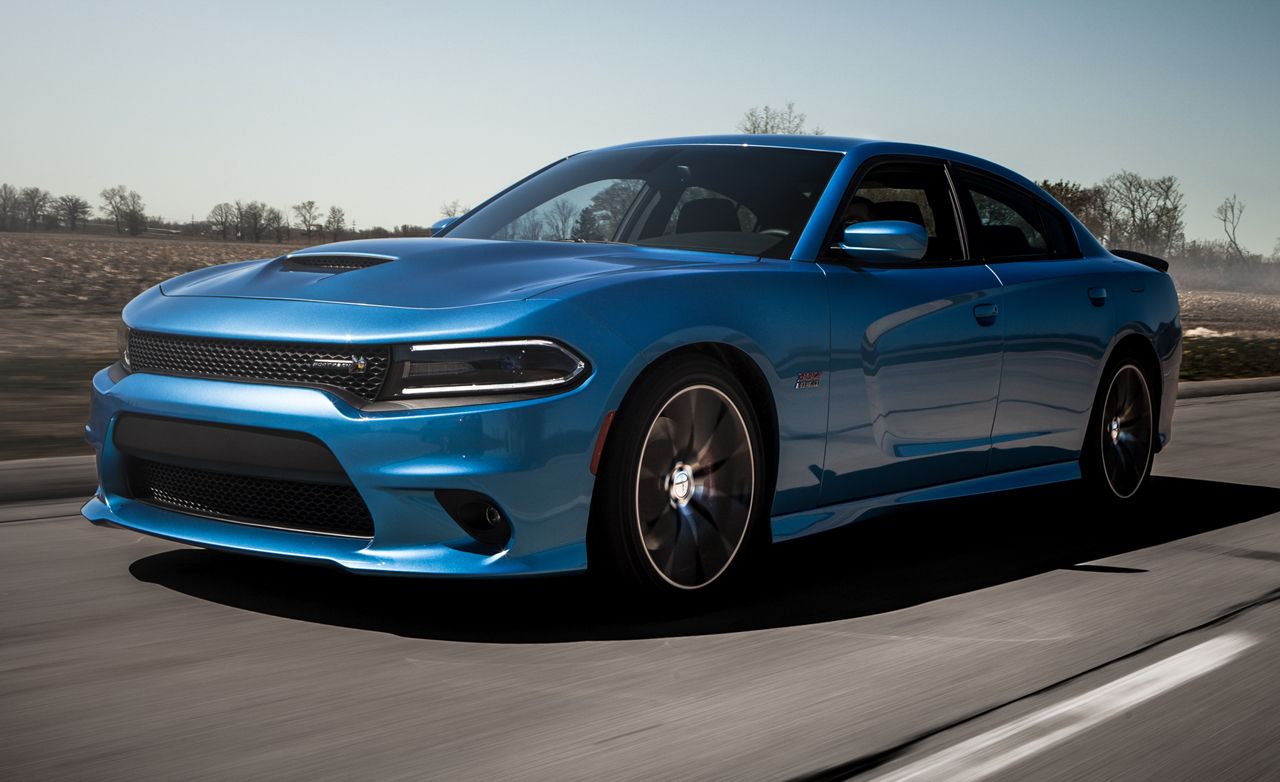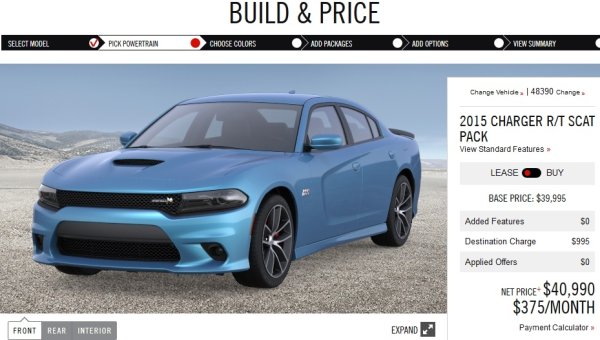
This sixth generation included relocating the rear decklid's "CHARGER" badging from the left to the right, making way for "DODGE" at the left.
#SCAT PACK CHARGER PRICE UPDATE#
The AWD system is engaged all the time, routing approximately 60% of the power to the rear wheels and 40% of the power to the front wheels.Īfter three years of production, an update for 2009 models was made. AWD models also benefited from use of Mercedes-Benz's 4MATIC system, including transfer case components.īoth the SXT and R/T models of the were available in rear and all-wheel drive trains starting in 2007. Later models also features a Mercedes-Benz derived laser key ignition system in place of the traditional metal key. Shared and or derived components from Mercedes-Benz included: the rear suspension cradle and 5-link independent rear suspension design derived from E-Class, the 5-Speed NAG1 (W5A580/WA580) transmission, rear differential, driveshaft, ESP & ABS systems, steering system, cabin electronics, switch gear such as the cruise control and turn signal combination stalk, seat controls, seat frames, wiring harness, and a double wish-bone front suspension design derived from the W220 S-Class. The Dodge Charger is based on the rear-wheel drive Chrysler LX platform with varying components derived from the Mercedes-Benz E-Class and S-Class of the era. It was a return to a rear-wheel-drive sedan platform Dodge had not offered since the mid-size Dodge Diplomat had been discontinued in 1989. It featured a four-door sedan body design, whereas all the previous production Chargers had two doors.

It took many styling cues from the 1960s Chargers, sharing their long nose and rearward cab, but was shorter at 187 in (4,750 mm), compared to 203 in (5,156 mm) for the 1966 Charger. In 1999, Dodge introduced a new Charger R/T concept car.

Although the name is associated with the late-1960s performance model in the Dodge range, it was also used on personal luxury coupes during the late-1970s and on front-wheel-drive subcompact hatchbacks during the 1980s. There were several different vehicles bearing the Charger nameplate built on three different platforms and sizes, all bearing the Charger nameplate. The first production Charger, based on the Dodge Coronet, was introduced as a 1966 model. The first Charger was a 1964 show car based on the Dodge Polara and fitted with a 426 Wedge V8 engine.
#SCAT PACK CHARGER PRICE PLUS#
Additional upper and lower LED lighting in the front of the cabin, plus illuminated rear cupholders, memory functions for the driver's seat, radio, and outside mirrors, and black-edge premium floor mats complete the interior changes.

Inside, they share power driver's and passenger's seats in Nappa leather and Alcantara with the Daytona logo, heated seats front and rear, a premium-stitched dash panel with gloss black instrument cluster rings, and a power tilt and telescoping steering wheel.

#SCAT PACK CHARGER PRICE UPGRADE#
Both sedans also upgrade their side mirrors to automatically adjust downward when the transmission is put in reverse, plus an automatically-dimming driver's side mirror. When optioned with the package, both trims get a Mopar cold air intake under the hood, a black spoiler, and a satin black Daytona graphic across the rear decklid and fenders. For the rest of the Daytona fandom, Mopar Insiders says Dodge has just opened the order books for the Daytona Edition Package available on the standard Charger R/T and Scat Pack. Dodge announced the Charger SRT Hellcat Widebody Daytona 50th Anniversary Edition late last year, limited to 501 examples, one of which has already gone to that big NASCAR infield in the sky.


 0 kommentar(er)
0 kommentar(er)
